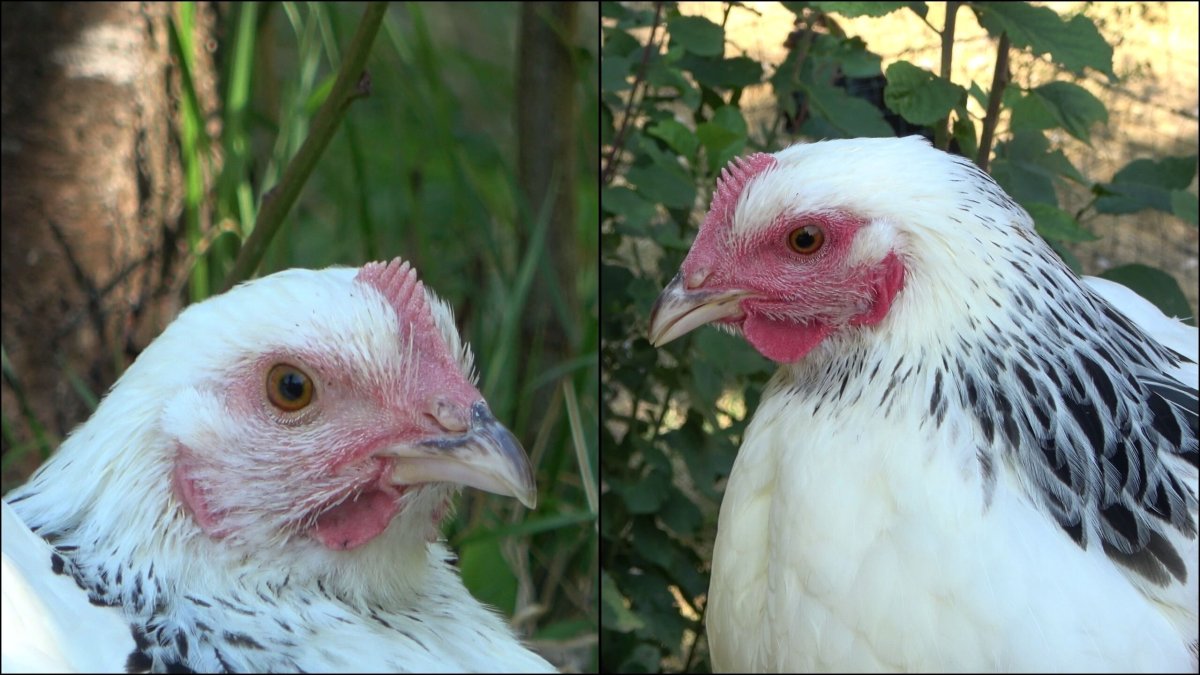Ever get so angry or embarrassed that you go red in the face? We have all been there. But now, apparently so do chickens.
Skin going red in response to certain emotions has been observed in other animals before, such as the blue and yellow macaw. But studying it has always been complex, especially in birds. Now, scientists are one step closer to understanding it, following a report published by French researchers at the National Research Institute for Agriculture, Food and Environment (INRAE) that found the phenomenon in chickens.
The team looked specifically at the Sussex laying hen over a period of three weeks, in a grove in the Loire Valley, France. During this time, they analyzed the chickens' responses to certain situations, including feeding and being caught.
Around 18,000 photos were taken of chickens and entered into a computer program that would allow scientists to measure how red their faces were.

There was no denying that chickens had a redder complexion on their face depending on their emotional state at the time when the photo was taken.
Some hens turned a little red when they were given food that they found particularly appetizing, such as mealworms.
However, when the chickens were caught, their faces were a very deep red. They did not seem red at all when they appeared to be in a relaxed state.
"Hens exhibited the highest degree of facial skin redness in negative situations of high arousal, a high redness in positive situations of high arousal, and the lowest in positive situations of low arousal," the authors wrote in the study.
These findings could help inform the future of animal welfare, if humans learn to recognize these side effects of negative emotions.
To look at the human-animal relationship further, the researchers initiated a trial of 13 Sussex hens, linked to one person who they had grown accustomed to over five weeks. They also studied 13 other hens, who had not gone through this.
The hens that were prepared with one person, overall, maintained a much lighter skin color in their faces. This indicates they were much more relaxed than the other hens, who were unfamiliar with people they came into contact with.
This indicates that chickens experience different emotions, depending on whether they are used to humans or not. This could be an invaluable tool for animal welfare in the future.
Next, the researchers would like to look into how these reddening signals manifest during social interactions in the species alone. This study is published in the journal Applied Animal Behaviour Science.
Do you have a tip on a science story that Newsweek should be covering? Do you have a question about chickens? Let us know via science@newsweek.com.
Uncommon Knowledge
Newsweek is committed to challenging conventional wisdom and finding connections in the search for common ground.
Newsweek is committed to challenging conventional wisdom and finding connections in the search for common ground.
About the writer
Robyn White is a Newsweek Nature Reporter based in London, UK. Her focus is reporting on wildlife, science and the ... Read more
To read how Newsweek uses AI as a newsroom tool, Click here.








